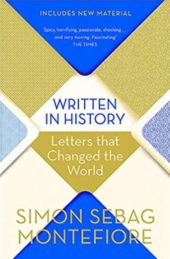What first attracted you to the period or periods you work in?
It’s much harder getting into the motivations and mindsets of pre-Enlightenment people, and often requires a higher level of theology than I have. The Enlightenment was the first period in history that the primary motivation was not fear, mostly fear of God. The fact that I can read the handwriting helps too; when you get much further back than 1750, it starts to get very hard to decipher.
Can you tell us a little more about how you research? Has the process changed over the years?
Although I get the same thrill as every other historian in handling original documents, and I do believe they give you special insights, that hasn’t always been possible since so many key archives have been closed over the Covid period. For my present book, on King George III, I have been incredibly fortunate that the wonderful Georgian Papers Programme had put 400,000 pages of documents online.
The common phrase is that history is written by the victors. Do you think this is true?
No. You’ll read paeans of praise to the fighting qualities, generalship, courage and so on, of the soldiers of the US Confederacy, the Germans in the two world wars, Napoleon’s Grande Armée, all of whom lost, thank God. The Cavaliers in the Civil War provide the romantic figures, and who doesn’t remember Hannibal and Spartacus and the heroes of Masada, compared to the Roman generals who defeated them? You can just as easily argue that history is written by the losers.
Are there any historians who helped shaped your career? Similarly, can you recommend three history books which budding historians should read?
The late Professor Norman Stone taught me that History is fun; the Cambridge historian Neil McKendrick taught me that it is worthwhile as an endeavour, even important. The late Kenneth Rose taught me that it needs to work as literature if it is to survive for very long as history. Budding historians should read Talleyrand by Alfred Duff Cooper, George V by Kenneth Rose, and Great Contemporaries by Winston Churchill to be reminded of the same three lessons.
If you could meet any figure from history, who would it be and why? Also, if you could witness any event throughout history, what would it be?
I’d allow my little finger to be guillotined off in order to spend an evening having dinner with Winston Churchill; there’s so much to ask him about. He might have had to have read my Churchill: Walking with Destiny in Heaven first, so that he could tell me what I got right and wrong. The event I’d have liked to have watched (assuming I had the stomach for it) is the battle of Waterloo, preferably by invisible helicopter or drone.
If you could add any period or subject to the history curriculum, what would it be?
The curriculum tends to jump from Henry VIII to Hitler a bit too quickly. I’d like it to linger a little in the 18th century, like it used to when I was young. Schoolchildren should be taught about the greatness of the Duke of Marlborough and the two Pitts, of Wolfe of Quebec and – wait for it – Clive of India.
If you could give a piece of advice to your younger self, either as a student or when you first started out as a writer, what would it be?
Start early; be bold. If you’re covering a contemporary subject, get out and interview the people who were there, before they leave the scene forever. Don’t believe what they tell you without contemporary evidence, of course, but go out and visit them and talk to them respectfully about their contributions to history and society. Age does tend to lend objectivity.
Can you tell us a little bit more about the project you are currently working on?
King George III is now almost exclusively known as the mad king who lost America, and viewed by many as either the tyrant of the Declaration of Independence or the camp would-be killer of Hamilton: The Musical. He was neither of things, but an enlightened polymath and small-R renaissance prince.






